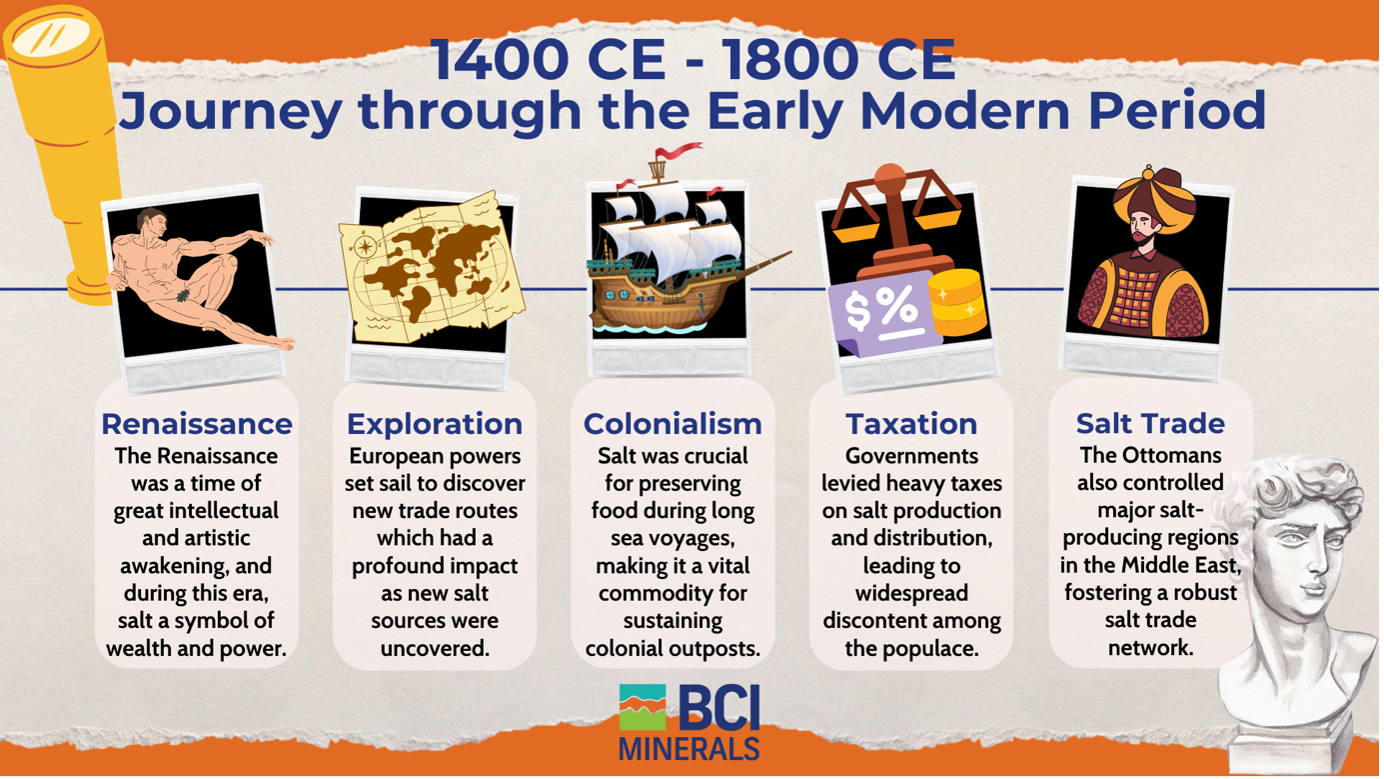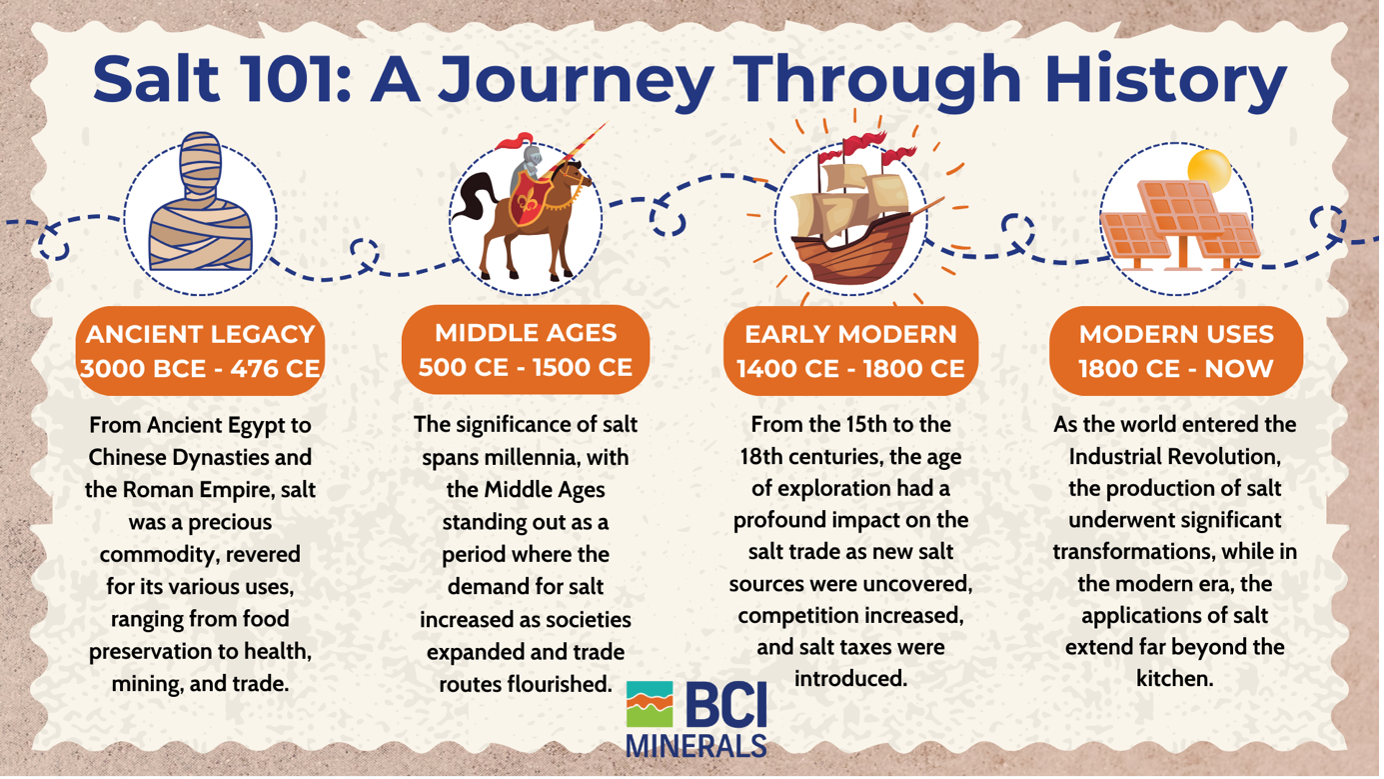
Salt, a seemingly ordinary condiment found in every kitchen, has a rich and fascinating history that spans across civilisations, playing a crucial role in trade, economics, and even politics.
To better understand the value of this critical resource today, we journey back in time to travel the salt road.
In the Early Modern Period, from the 15th to the 18th centuries, salt was a crucial factor in the significant developments of trade routes and cultural impacts.
The Renaissance and Salt
The Early Modern Period marked the Renaissance, a time of great intellectual and artistic awakening, and during this era, salt was not only a staple for preserving food but also a symbol of wealth and power.
Italy, a central hub for cultural and economic exchange, played a pivotal role in the salt trade.
Venice, known for its maritime prowess, controlled major salt routes, and the lucrative salt trade became a significant source of revenue for the city-state.
Exploration and New Salt Sources
The 15th century witnessed the Age of Exploration, with European powers setting sail to discover new trade routes.
This exploration had a profound impact on the salt trade as new salt sources were uncovered.
The discovery of salt mines in the Americas and the Caribbean significantly altered the dynamics of the global salt market, leading to increased competition and shifting trade patterns.
Salt and Colonialism
Colonial powers recognised the strategic importance of salt in establishing and maintaining colonies.
Salt was crucial for preserving food during long sea voyages, making it a vital commodity for sustaining colonial outposts.
European powers, particularly the Spanish and Portuguese, sought to control salt-producing regions to secure their colonial interests.
The Caribbean islands, with their natural salt pans, became hotspots for colonial struggles over salt resources.
Taxation and Salt Monopolies
As European nations expanded their empires, they implemented salt taxes and monopolies to fund their colonial ventures.
Governments levied heavy taxes on salt production and distribution, leading to widespread discontent among the populace.
Salt monopolies were established in various regions, contributing to social unrest, and even sparking conflicts, such as the French Salt Tax, which played a role in the lead-up to the French Revolution.
Asian Salt Trade
While European powers were shaping the salt trade in the West, the East had its own vibrant history of salt production and trade.
In Asia, the Ming and Qing dynasties had extensive salt administration systems, recognising the economic and political significance of this mineral.
The Ottomans also controlled major salt-producing regions in the Middle East, fostering a robust salt trade network.

As we continue to journey through time to explore the origins and value of salt, we observe salt’s role in the Chemical Revolution and current modern applications.
The first two articles in this series, “The ancient legacy of salt” and “Shaping history in the Middle Ages”, can be found on the BCI Minerals website: https://www.bciminerals.com.au/newsroom.html
